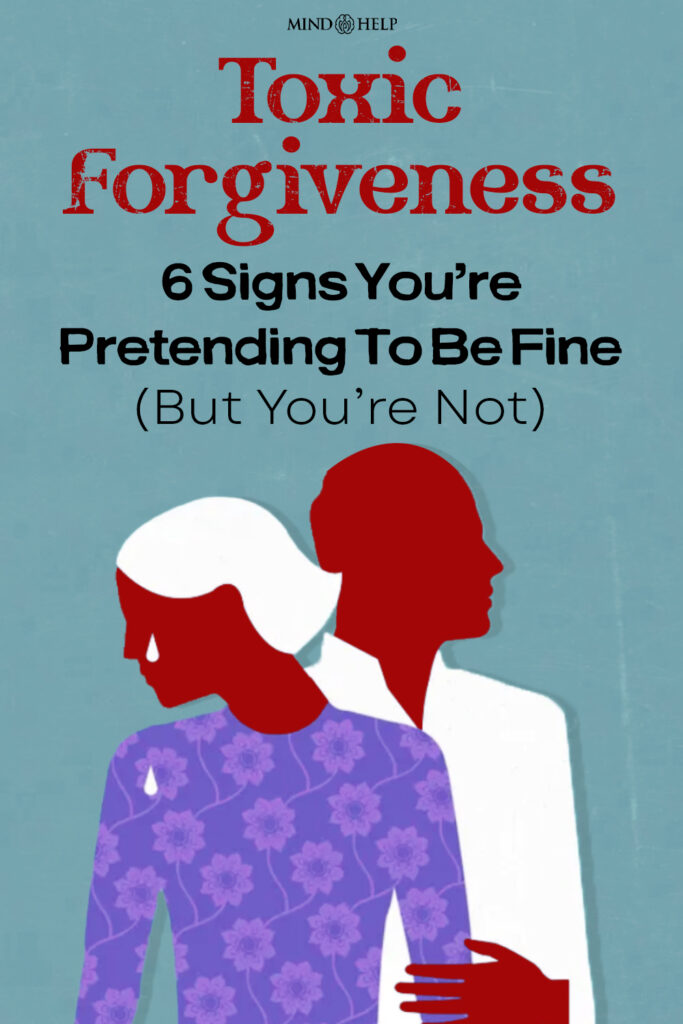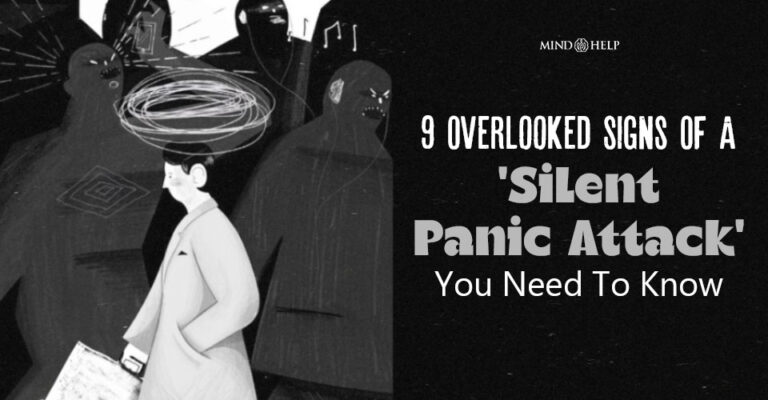We’ve heard about toxic apology, but did you know what toxic forgiveness is? I mean, how can forgiving someone be toxic? Well, it is! Not for them, but you!
It happens when you pretend you’re over something just to keep the peace, even though you’re still hurt inside. Maybe you rush to say “It’s fine” so you don’t start an argument.
Or maybe you downplay your feelings because you don’t want to be seen as bitter or holding a grudge. On the outside, you might come off as mature or graceful.
But on the inside, it leads to a form of self-abandonment. Silencing your pain so someone else can feel comfortable. And over time, that kind of forgiveness doesn’t bring peace, it hurts your feelings causing resentment towards that person, or others around you.
So, if you’ve ever smiled and said you’re fine while feeling anything but fine, you might need to look a the signs of toxic forgiveness cycle and learn how to exit it for good.
Read more here: Fear Of Public Opinion Is Holding You Back: 7 Signs Of Silent Confidence Killer
What Is Toxic Forgiveness?
Relationship expert and best-selling author, Nedra Glover Tawwab, a therapist, coined the term “toxic forgiveness.” She popularized the idea through her writing and talks by pointing out how certain types of forgiveness can be damaging to one’s relationships and overall well-being.
Check Out The 6 Signs Of Toxic Forgiveness
1. You forgive immediately, without processing the hurt.
If you say “It’s fine, I’m over it” too quickly, even though your chest feels heavy, you’re not doing the emotional work. Forgiving someone quickly can be real, but a lot of the time it’s just a way to avoid pain.
2. You feel resentment bubbling under the surface.
You said you’ve forgiven them, but every time you hear their name, your stomach tightens. Feeling resentful is a sign that your feelings weren’t really dealt with.
3. You don’t forgive because you’ve healed, you do it to avoid conflict.
If your “forgiveness” is more about keeping things peaceful than really healing your emotional wounds, it’s similar to signing a peace treaty under pressure.
4. You minimize your pain to make others comfortable.
One of the signs of toxic forgiveness is that you tell yourself “It wasn’t that bad” when it actually was. Shrinking your feelings for the sake of harmony means you’re invalidating your own hurt.
5. You secretly expect the other person to change without talking about it.
You hope they’ll “get it” and stop, but you never tell them how hurt you are. That isn’t resolution, it’s silent, unspoken resentment.
6. You feel drained or fake after “making peace.”
There is lightness in true forgiveness. But if you feel heavier later, you’re simply covering up how you feel rather than letting it go.
How To Exit The Toxic Forgiveness Cycle
1. Allow yourself to not forgive right away.
It is not a race to grant forgiveness. It takes time to heal. Sitting with your emotions should be acceptable, even if it causes discomfort for other people.
2. Acknowledge that they hurt you, fully and honestly.
Write it down in your phone’s notes app, talk it out, or just admit it to yourself: “That hurt me.” You can’t heal what you refuse to name.
3. Define boundaries well.
It’s not always forced proximity that brings true peace. Setting limits is an act of self-respect, not retaliation.
4. Communicate if it’s safe to do so.
Let the other person know how their actions affected you. This doesn’t guarantee they’ll change, but it honors your truth..
5. Choose self-healing over self-silencing.
Instead of pretending everything’s fine, tend to the wound. Therapy, journaling, or talking to supportive friends can help you process.
Read more here: 9 Things You Don’t Have To Explain To Anyone (Not Even Your Best Friend)

Toxic forgiveness may appear to be a sign of grace, but on the inside, it undermines your value.. So it’s up to you, who you choose to forgive completely or not at all, depending on how much time it takes.
So are you ready to break the toxic forgiveness cycle? Let us know your thoughts in the comments below!








